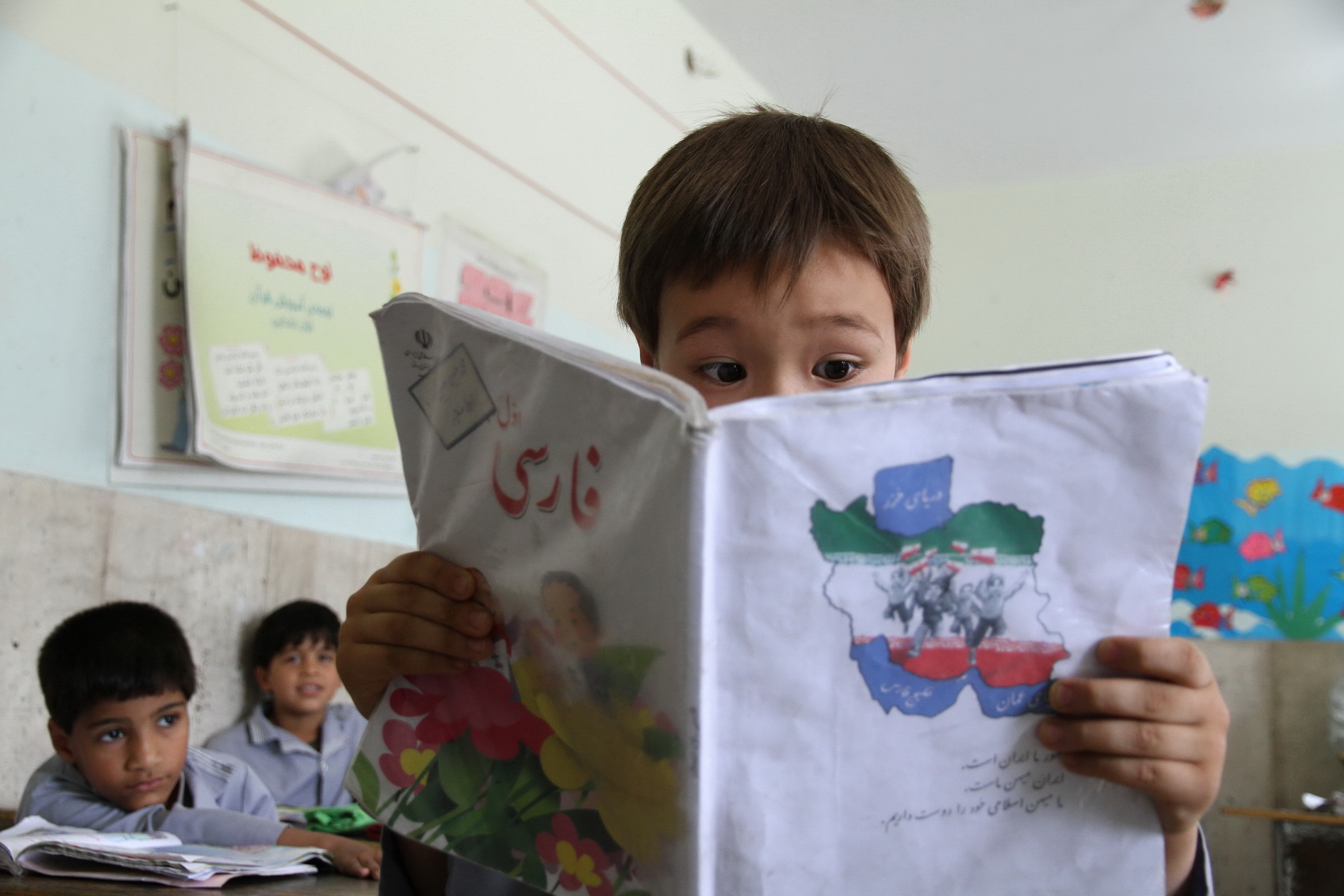UNHCR partners with the Government of Iran, especially the Bureau for Aliens and Foreign Immigrants’ Affairs (BAFIA) and the Ministry of Education, to facilitate refugees’ access to quality primary and secondary education.
In May 2015, Iran began allowing all Afghan children of school age to attend primary and secondary school regardless of their documentation status. Since 2016, refugee children do not have to pay refugee-specific school fees, which stood at USD $70-90 per child. This allows equal access to education for all.
Primary and Secondary education
In Iran, UNHCR co-funds the construction of schools in refugee-populated areas. Between 2016-2020, UNHCR supported the construction of 53 schools so that refugee, undocumented and Iranian children have the same opportunity to get an education.
According to the Ministry of Education, the number of Afghan and Iraqi children enrolled in primary and secondary schools in 2021 is 500,080, including 185,000 undocumented children
Higher Education
Higher education nurtures a generation of future change-makers that can take the lead in identifying solutions to refugee situations. Higher education is a priority for UNHCR outlined in the Education 2030: A Strategy for Refugee Education, forming an integral part of UNHCR’s protection and solutions mandate.
Refugees in Iran can access higher education, by obtaining a national passport and applying for a student visa. They can also receive support to cover their tuition fees and living allowances while undertaking their undergraduate studies, thanks to the DAFI Scholarship, which UNHCR implements with the Iranian NGO Pars Development Actors Institute (PDA). In 2021, 569 refugee students were supported with the scholarship.
The DAFI (Albert Einstein German Academic Refugee Initiative) scholarship programme offers qualified refugee and returnee students the possibility to earn an undergraduate degree in their country of asylum or home country. Through the dedicated support of the governments of Germany, Denmark and the Czech Republic, UNHCR and private donors, the programme has supported over 18,000 young refugees worldwide to undertake tertiary studies since 1992.
UNHCR also partners with the Literacy Movement Organization to enable access to literacy classes for over-aged and out-of-school refugee children and adults, with the aim that they can eventually rejoin the formal education system.
The impact of COVID-19 on education
While children in every country have struggled with the impact of COVID-19 on their education, refugee children have been particularly disadvantaged. Before the pandemic, a refugee child was twice as likely to be out of school as a non-refugee child. This is set to worsen – many may not have opportunities to resume their studies due to school closures, difficulties affording fees, uniforms or books, lack of access to technologies or because they are being required to work to support their families.
Since the start of the pandemic in 2020, schools in Iran shifted to remote learning, with classes held on online platforms. This change has hampered the access to education for many refugee children who lack access to equipment, putting them at risk of school dropout and child labour. As a mitigating measure, UNHCR in collaboration with the Government will provide 21,500 tablets to refugee students to facilitate their access to online learning.
UNHCR predicts that unless immediate and bold action is taken by the international community to beat back the catastrophic effects of COVID-19 on refugee education, the potential of millions of young refugees living in some of the world’s most vulnerable communities will be further threatened.

